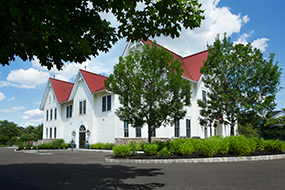According to Wikipedia, the term “ambulance chasing” comes from the stereotype of lawyers that follow ambulances to the emergency room to find clients and is also used as a derogatory term for a “personal injury lawyer.” I am a trial lawyer who represents people seriously injured, or their family when someone is killed, and the death or injury is due to the reckless act of a doctor, company, or person. Often, when someone asks what I do, I say I am a personal injury lawyer. So, according to the derogatory form of the definition, I guess I am an “ambulance chaser.” If the shoe fits and all that, right?
Actual ambulance chasing is unethical per the American Bar Association and Pennsylvania Bar Association. “A lawyer shall not solicit in-person or by intermediary professional employment from a person whom the lawyer has no family or prior professional relationship when a significant motive for the lawyer’s doing so is the lawyer’s pecuniary gain, unless the person contacted is a lawyer or has a family, close personal, or prior professional relationship with the lawyer.” Pa. Rule of Professional Conduct Rule 7.3.
The term ambulance chaser is obviously a disparaging term which no lawyer who does what I do wishes to be called, even jokingly, not only because it is disparaging, but also because it connotes unethical conduct.
Recently, my mother passed away. We held a celebration of her life. I was very moved by the many former clients who attended that celebration of life to express their condolences personally, and those many other clients who could not attend, but who sent flowers, mass cards or letters. One such letter was from a now 40 year old man who suffered a brain injury when he was 16 years old and whose case I completed more than 20 years ago. He now lives in Florida but wrote to me that he thinks of what I did for him every day and he is hurting because I am hurting. That young man’s parents, who still live in the area, attended the services as well.
Another client who had suffered a bilateral leg amputation and whose case ended several years ago was one of the very first persons at the “meeting with the family” before the mass, stayed the entire mass and the luncheon. Another former client, a victim of a horrible motorcycle accident in which he suffered an injury that has made wearing formal shoes very painful, wore a suit and a pair of black oxfords, limping his way through the line of those paying their respects. These people did not know my mother.
Many of my former clients and I remain very close personal friends. An older Guatemalan woman who was hit by a bus as a pedestrian suffering a brain injury has, since the case ended many years ago, hosted my family at her home for an authentic Guatemalan dinner annually. I attended her husband’s funeral services in Allentown the night before my mother’s own. Neither she nor her husband speak English but our communication is always easy because we know and love each other.
One of the very great disappointments of my work is that I cannot help everyone who calls me. Last year I received calls from more than 250 people who suffered bad outcomes from what they perceived to be negligent medical care. After spending a lot of time, and sometimes a lot of my own money to understand the issues and investigate, I took less than a handful of these cases. In my office, presently, we take on as clients perhaps 10%-20% of the opportunities we have to undertake representation. In taking such a thorough approach to evaluate what cases to bring and not to bring, I believe I am doing a service to our community as a whole. I am ensuring that only cases in which people have suffered serious injury due to provable careless conduct are brought.
This process allows me to become deeply involved in the life of my clients and their families. I know many of my own clients better than members of their own families do. I am with my clients during the most trying times of their lives, while they are most vulnerable and scared. To come out of such an experience together, with results that help these people pay for past and future lost wages and medical bills, and for what loss of life’s pleasures they’ve endured, creates a bond, a relationship, that creates life-long friendships.
So, unless you’ve needed my help, you may unfairly call me an ambulance chaser. But that is a small price for me to pay to receive the reward of the life long bonds I have made with my former clients. To them, I say thank you for giving me the privilege of inviting me into your life and helping you with your struggles.

